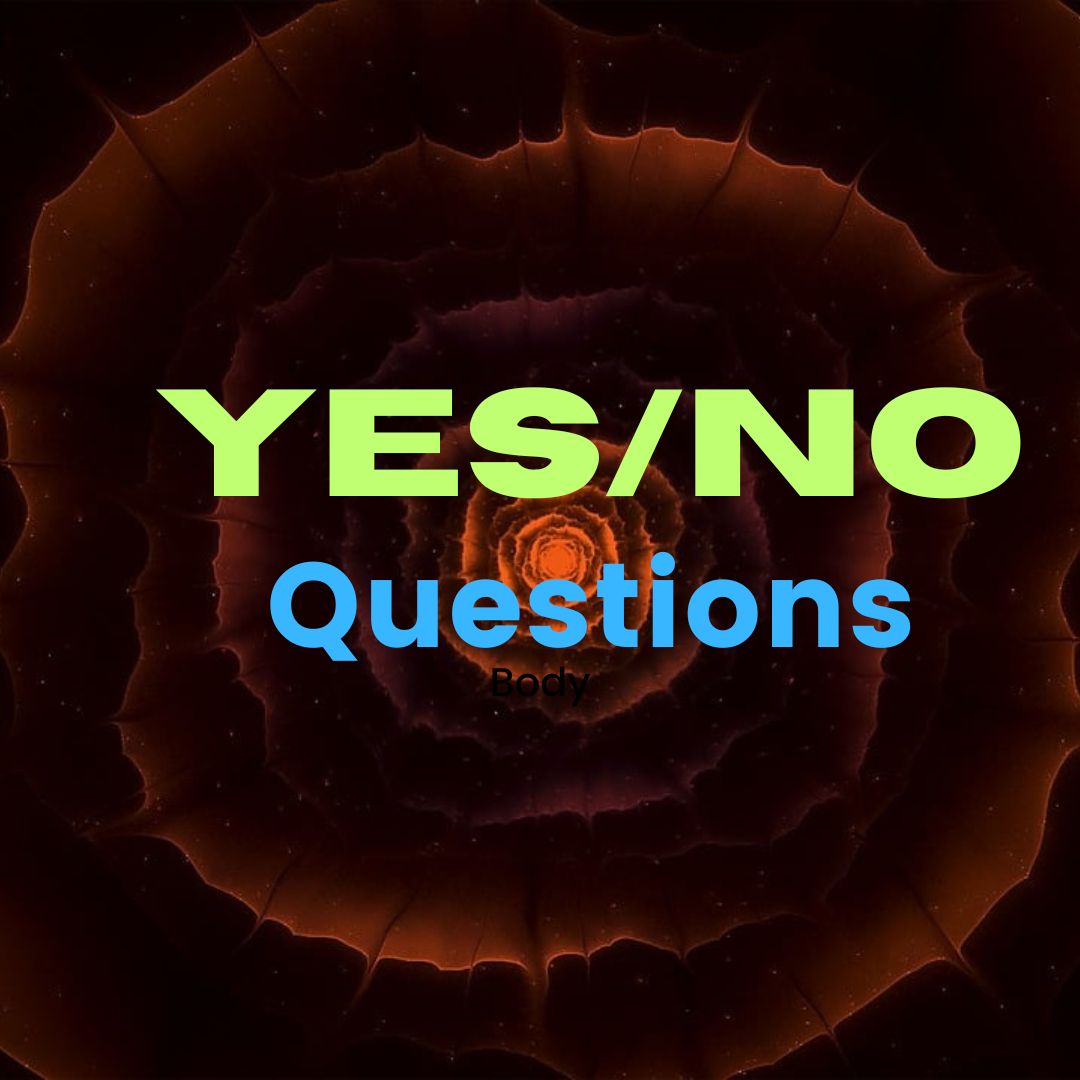Yes/No Questions (Interrogative Sentence)

Yes/No questions:
Interrogative sentences are sentences that are used to ask questions.
One common type of interrogative sentence is the yes/no question.
Yes/no questions are designed to elicit a response of either yes or no.
Intonation in Yes/No questions:
Yes/no questions often end with a rising pitch. This means that the speaker’s voice goes up at the end of the question.
Rising intonation is commonly associated with questions where the speaker is seeking confirmation, asking for information, or expressing uncertainty.
Example: Did you go to the store?
Yes/no questions in Tense forms with two auxiliary verbs:
When forming yes/no questions with two auxiliary verbs in tense forms, the structure involves placing the subject between two auxiliary verbs.
Here’s the general structure:
Auxiliary Verb 1 + Subject + Auxiliary Verb 2 + Main Verb (+ Complement)?
Future Perfect:
Will they have completed the project by next month?
Will you have graduated by the time of the ceremony?
Yes/No questions/answers:
Creating yes/no interrogative questions involves structuring sentences that can be answered with a simple yes or no.
These questions are useful for seeking straightforward and concise responses.
Structure:
Begin with an auxiliary verb (e.g., is, are, am, do, does, did, can, will, etc.) or modal verb (can, could, may, shall, will, etc.)
Follow the verb with the subject of the sentence.
Place the main verb or any necessary modifiers at the end of the sentence.
End the question with a question mark.
Examples:
Do you work at the office?
Yes, I do.
No, I don’t.
Are they studying for the exam?
Yes, they are.
No, they aren’t.
Have you visited that museum?
Yes, I have.
No, I haven’t.
Did you watch a movie last night?
Yes, I did.
No, I didn’t.
Were they playing in the park?
Yes, they were.
No, they weren’t.
Had she already eaten when you arrived?
Yes, she had.
No, she hadn’t.
Will he arrive tomorrow?
Yes, he will.
No, he won’t.
Examples of yes/no questions for modal verbs, along with corresponding yes/no answers:
Can:
Can she swim?
Yes, she can.
No, she can’t.
Can we help you?
Yes, you can.
No, you can’t.
Could:
Could he solve the problem?
Yes, he could.
No, he couldn’t.
Could you go to the party?
Yes, I could.
No, I couldn’t.
May:
May they attend the conference?
Yes, they may.
No, they may not.
May she join us later?
Yes, she may.
No, she may not.
Might:
Might I visit the museum?
Yes, you might.
No, you might not.
Might it rain tomorrow?
Yes, it might.
No, it might not.
Shall:
Shall we meet at the library?
Yes, we shall.
No, we shall not.
Shall you submit the report?
Yes, I shall.
No, I shall not.
Should:
Should you apologize?
Yes, I should.
No, I should not.
Should they consider the offer?
Yes, they should.
No, they should not.
Will:
Yes, she will.
No, she will not.
Will you finish the project on time?
Yes, we will.
No, we will not.
Would:
Would he always help others?
Yes, he would.
No, he would not.
Would you like a cup of tea?
Yes, I would.
No, I would not.
Short answers with Adverbs:
When providing short answers with adverbs in response to yes/no questions, the adverb typically comes before the auxiliary or modal verb, and the structure is as follows:
Did you meet her when you were in Italy?
No, I never did.
Yes, I often did.
Yes/No questions negative form:
Negative yes/no questions with the particle not can be used to express surprise or disbelief.
These questions are crafted in a way that implies an unexpected or contrary situation.
Present Simple:
Isn’t she coming to the party?
Past Simple:
Didn’t you finish your homework?
Present Continuous:
Aren’t they studying for the exam?
Present Perfect:
Hasn’t she completed the project?
Surprise about Attendance:
Isn’t he coming to the party?
(Expressing surprise about the unexpected absence)
Surprise about Completion:
Didn’t you finish your homework?
(Expressing surprise about the assumed completion not happening)
Surprise about Studying:
Aren’t they studying for the exam?
(Expressing surprise about the unexpected lack of preparation)
Surprise about Project Completion:
Hasn’t she completed the project?
(Expressing surprise about the assumption of project completion being incorrect)
Yes/No Questions (Interrogative Sentence)
Wh-questions (Interrogative Sentence)
Types of Interrogative Sentences
About Nouns. Common and Proper Nouns